It is always a pleasure to see your own paper in print. If all is properly organised at the publisher, the first time you see you paper as it will look in its final version when you receive the proof copy. It is the authors’ task to proofread this final copy and pick up any mistakes you may have made or the journal has made putting your word file into the journal’s layout. More and more journals now ask you to do the proofreading and editing online. The first message here is that proofreading is exact business and most certainly time consuming. Moreover, feeding back mistakes you may find in the proofs is not without its trials and tribulations.
Yesterday we received the proofs for a paper accepted by BMC Health Research Policy & Systems [1]. The BMC is part of the publisher Springer , and it uses an online proof system eProofing to which the authors get temporary access, to read and correct text. This system looks good online, but beware the online version you get to edit does not look the same as the version that will appear in print. The draft print version generated by eProofing has line numbers which don’t appear online when you are editing the proofs. So we had to write on the online system separately that we found a set of quotes glued together, as the system does not allow authors to change the lay-out (for obvious reasons). In this case, we had to write details like: “There needs to be a space after first quote line 421.” What might look okay in the eProofing version didn’t do so in the print version, where it was it is wrong. This is illustrated in the example picture below.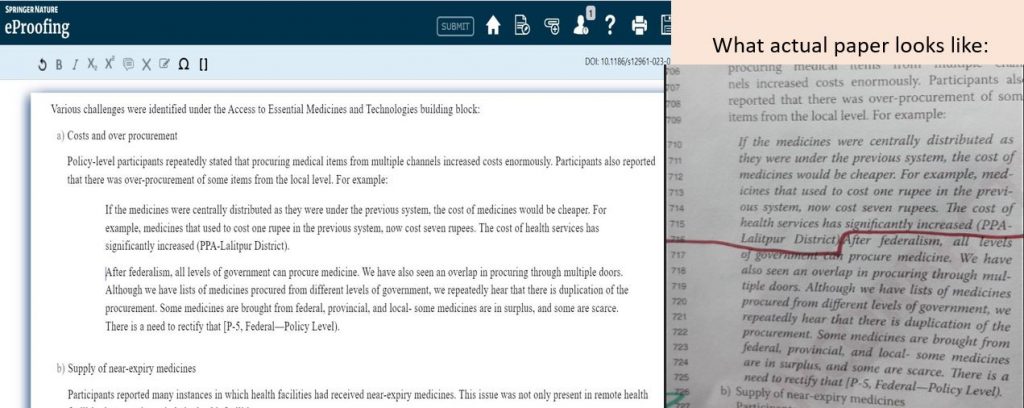
Last month we battled with the proofs of another BU paper forthcoming in the journal Women and Birth [2], which is part of Elsevier. Again, it has an online system for proofs. This system does not allow the authors to correct mistakes in in the line spacing. So we ended up writing to journal manager, not the editor, things like: “There is a very big gap between the end of section 3.7. and Overview of findings section – please could the text be rearranged to get rid of this big gap.” We also asked for a summary section to be kept on one page, not having an orphan two words on the next page, but that appeared to be too difficult a request. We think we a little flexibility, i.e. a human intervention the lay-out could have been improved. See illustration below with text as it appears in the current online-first version.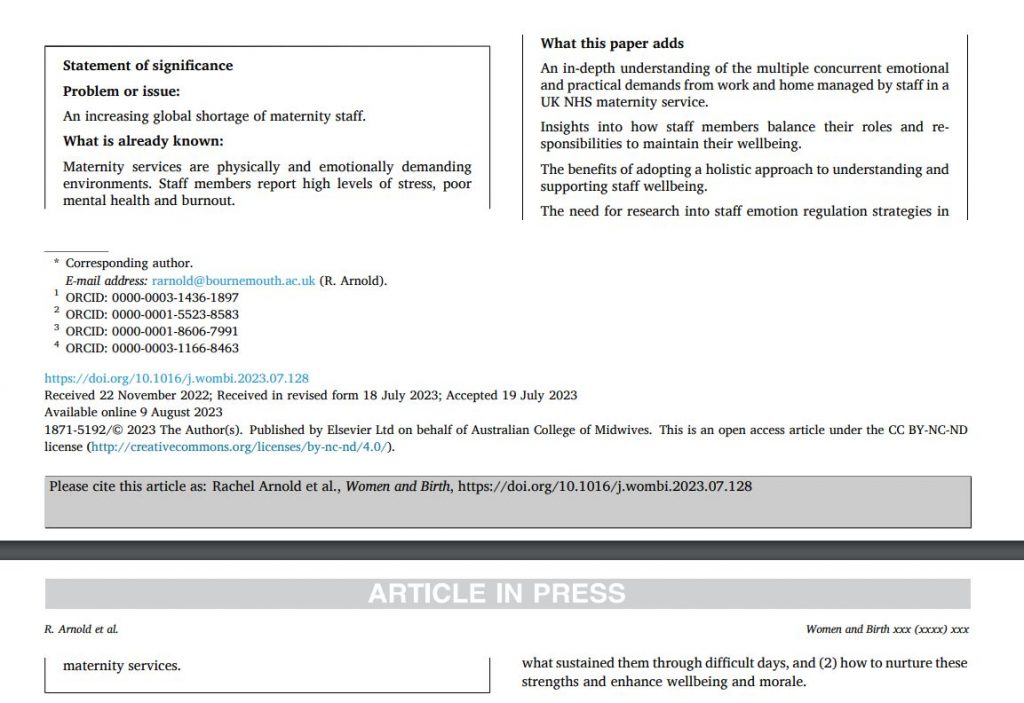
We like to stress our advice to set plenty of time aside to read and edit the proofs, and to send details instructions to the journal manager or editor about what needs changing. Changes include typos, grammar and style, but also lay-out of text and illustrations, boxes in the text, tables and figures. “It is also important to check tables and figures during the proof-reading as the formatting can often go astray during the typesetting process” as we highlighted by Sheppard and colleagues [3]. Also double check correct spelling of names of co-authors and the final author order in the proofs. Many years ago, I received the proof of pages of a midwifery article [4].
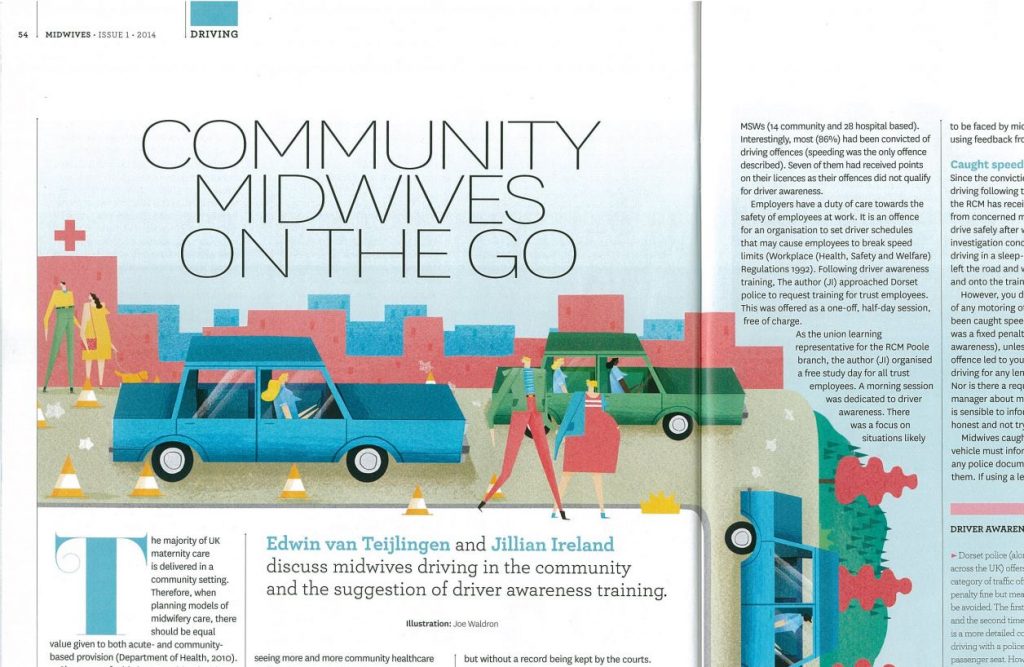 I dutifully read and edited the proof of the actual text, but I never check the short introduction with the authors’ names which an editor had added to the final proofs. When the paper came out in print to transpired that this editor has changed the author order, i.e. my name was first, probably because I had submitted the paper on behalf of my co-author. This cause some problems with my co-author, made all the worse since I am married to her.
I dutifully read and edited the proof of the actual text, but I never check the short introduction with the authors’ names which an editor had added to the final proofs. When the paper came out in print to transpired that this editor has changed the author order, i.e. my name was first, probably because I had submitted the paper on behalf of my co-author. This cause some problems with my co-author, made all the worse since I am married to her.
Prof. Edwin van Teijlingen
Centre for Midwifery & Women’s Health

References:
- Wasti, S.P., van Teijlingen, E., Rushton, S., Subedi, M., Simkhada, P., Balen, J., Nepal Federalisation of Health Team (2023) Overcoming the challenges facing Nepal’s health system during federalisation: an analysis of health system building blocks. Journal of the Health Research Policy & Systems. (forthcoming).
- Arnold, R., Way, S., Mahato, P., van Teijlingen, E. (2023) “I might have cried in the changing room, but I still went to work”. Maternity staff managing roles, responsibilities, and emotions of work and home during COVID-19: an Appreciative Inquiry, Women & Birth (online first)
- Sheppard, Z., Hundley, V., Dahal, N.P., Paudyal, P. (2022) Writing a quantitative paper, In: Wasti, S.P., van Teijlingen, E., Simkhada, P., Hundley, V. with Shreesh, K. (eds.) Writing and Publishing Academic Work, Kathmandu, Nepal: Himal Books, pp.78-87.
- van Teijlingen E., Ireland, J.C. (2014) Community midwives on the go. Midwives 1: 54-55.
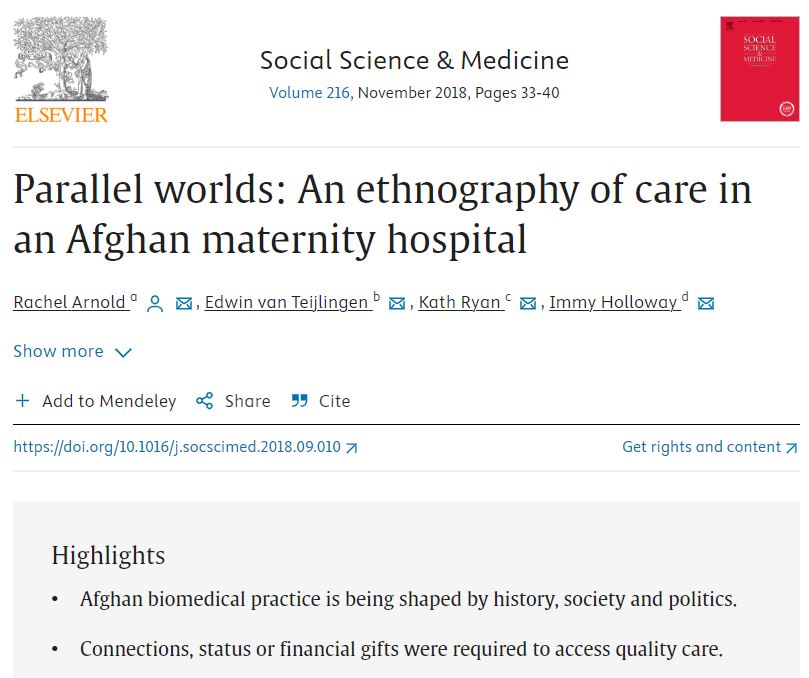 Congratulations to Dr. Rachel Arnold, whose paper ‘Parallel worlds: An ethnography of care in an Afghan maternity hospital‘ has been cited twenty times according to a message from ResearchGate. This is one of the paper originating from Rachel’s PhD in the Centre for Midwifery and Women’s Health. Rachel’s has published several more papers from her PhD research [2-4] and she also co-authored a further paper on health management in Afghanistan with our former PhD student Dr. Shaqaieq Ashrafi [5].
Congratulations to Dr. Rachel Arnold, whose paper ‘Parallel worlds: An ethnography of care in an Afghan maternity hospital‘ has been cited twenty times according to a message from ResearchGate. This is one of the paper originating from Rachel’s PhD in the Centre for Midwifery and Women’s Health. Rachel’s has published several more papers from her PhD research [2-4] and she also co-authored a further paper on health management in Afghanistan with our former PhD student Dr. Shaqaieq Ashrafi [5].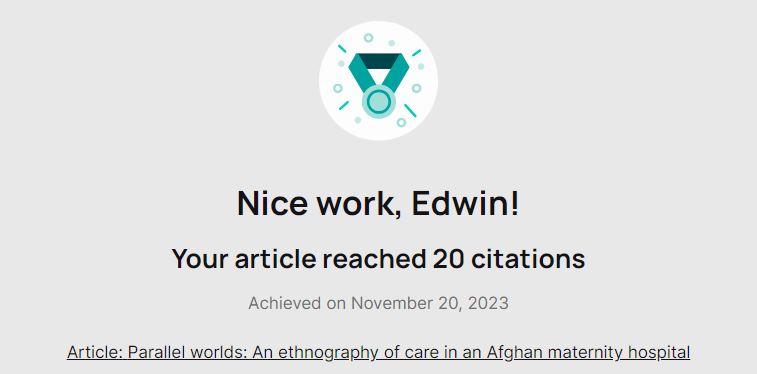

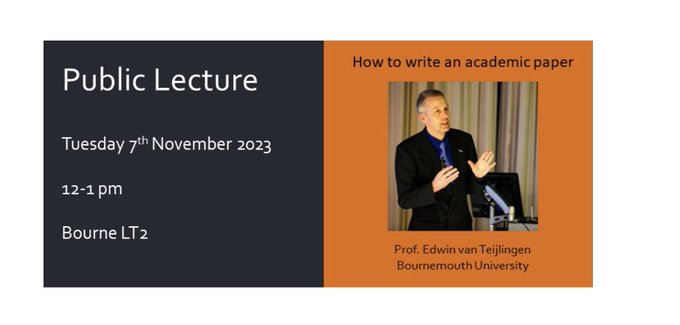 Professor Edwin van Teijlingen in the Centre for Midwifery & Women’s Health (CMWH) has been invited to speak at Royal Holloway, University of London, about writing an academic paper. His public lecture will be coming Tuesday lunch time in the appropriately named ‘Bourne Lecture Theatre’ at Royal Holloway. Prof. van Teijlingen, together with several Bournemouth University (BU) colleagues, has published a text book [1], several book chapters [2-18] and a large number of papers [19-38] about a wide-range of aspects of academic writing and publishing. One of former BU academics, who co-authored a book chapter [10], and two papers [21, 25], is Dr. Preeti Mahato. She is Lecturer in Global Health at Royal Holloway as well as Visiting Faculty in BU’s Faculty of Health & Social Sciences.
Professor Edwin van Teijlingen in the Centre for Midwifery & Women’s Health (CMWH) has been invited to speak at Royal Holloway, University of London, about writing an academic paper. His public lecture will be coming Tuesday lunch time in the appropriately named ‘Bourne Lecture Theatre’ at Royal Holloway. Prof. van Teijlingen, together with several Bournemouth University (BU) colleagues, has published a text book [1], several book chapters [2-18] and a large number of papers [19-38] about a wide-range of aspects of academic writing and publishing. One of former BU academics, who co-authored a book chapter [10], and two papers [21, 25], is Dr. Preeti Mahato. She is Lecturer in Global Health at Royal Holloway as well as Visiting Faculty in BU’s Faculty of Health & Social Sciences.
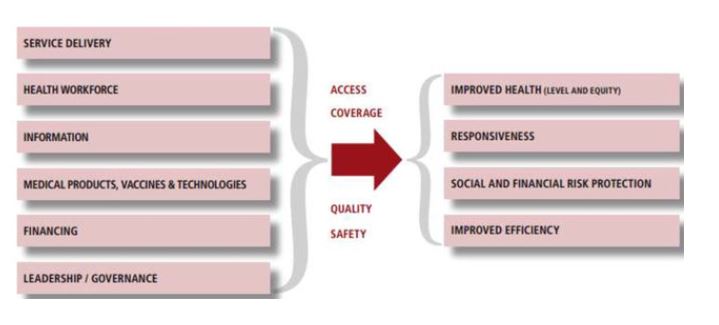
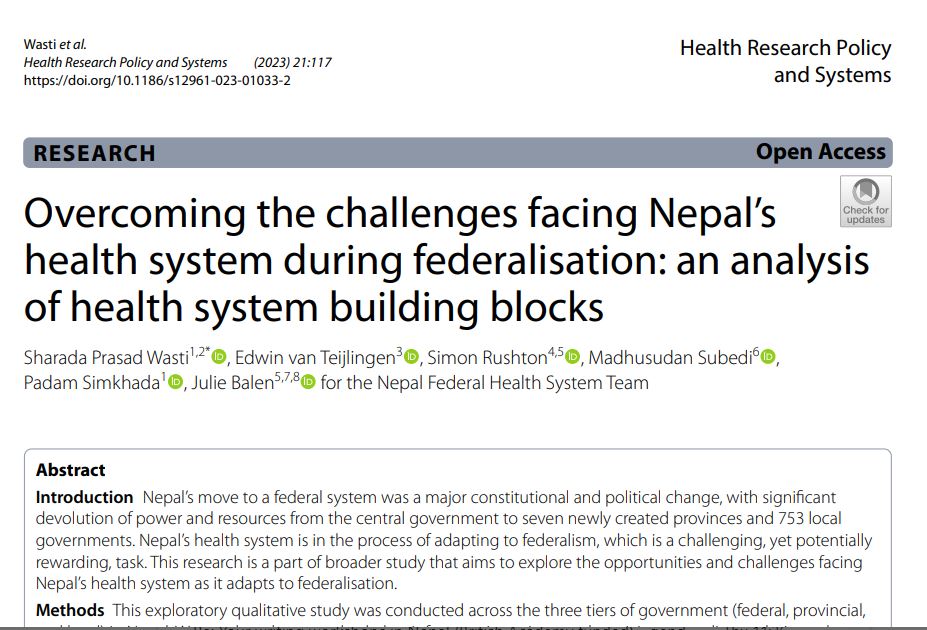
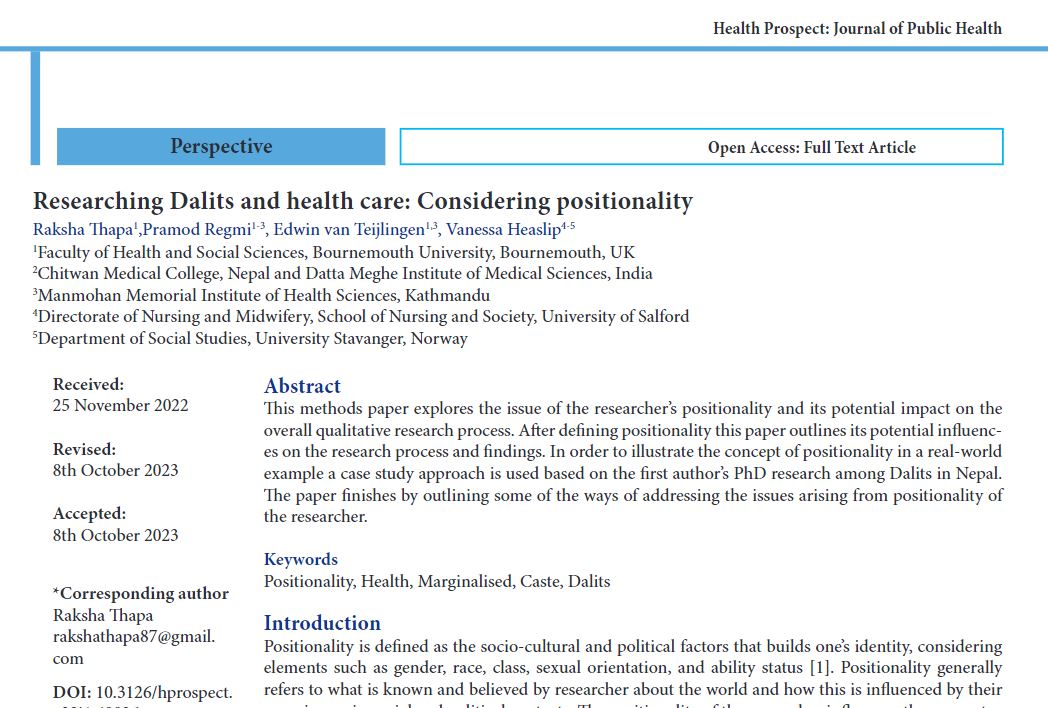

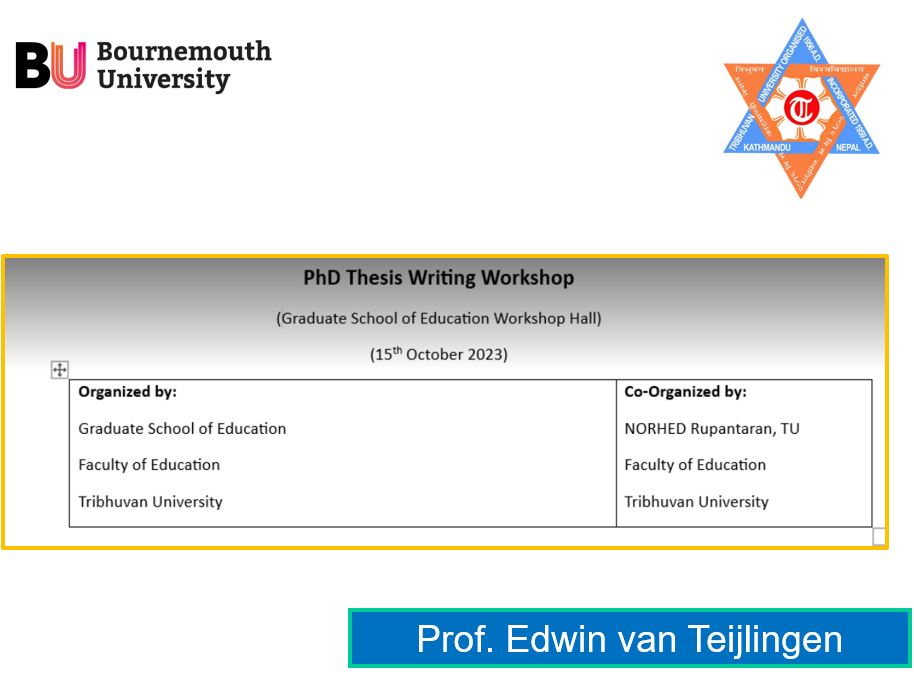

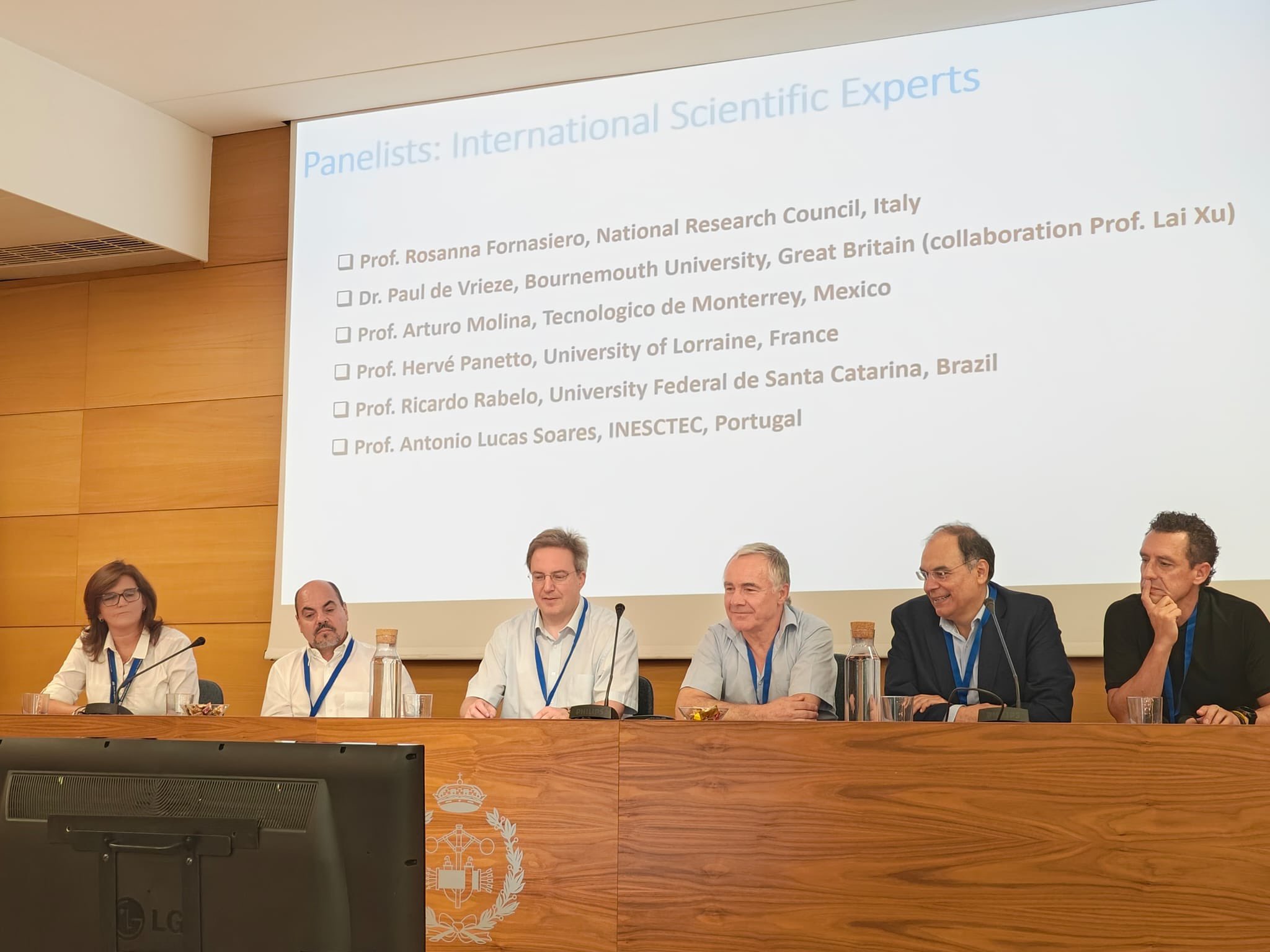
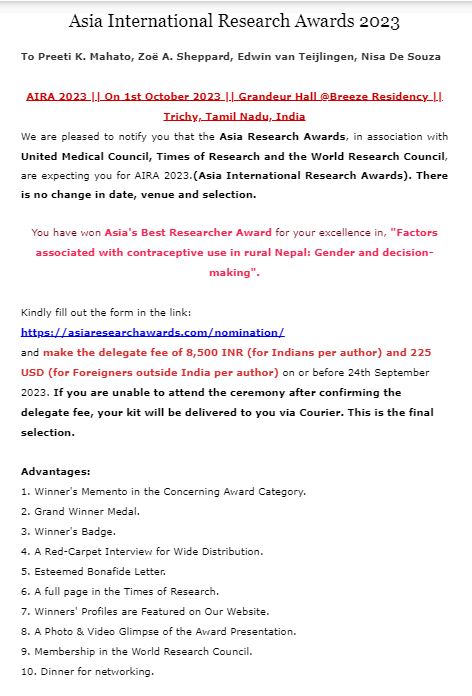

 Join UKRIO for their latest free webinar “Correcting the scholarly record, and dispelling myths around corrections” on
Join UKRIO for their latest free webinar “Correcting the scholarly record, and dispelling myths around corrections” on 




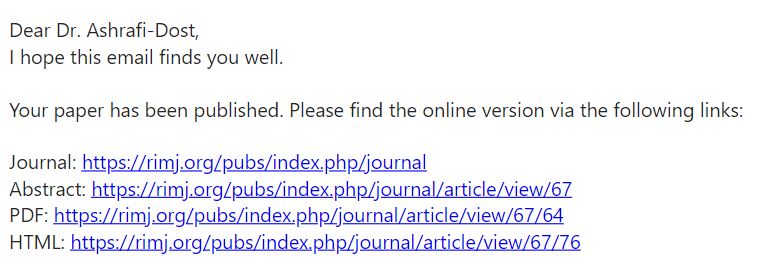
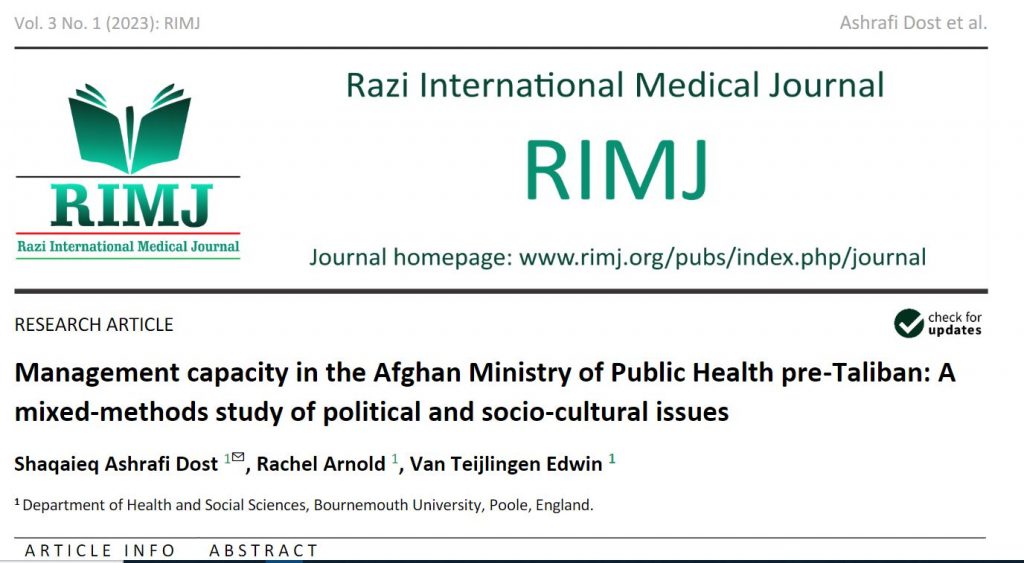














 REF Code of Practice consultation is open!
REF Code of Practice consultation is open! BU Leads AI-Driven Work Package in EU Horizon SUSHEAS Project
BU Leads AI-Driven Work Package in EU Horizon SUSHEAS Project Evidence Synthesis Centre open at Kathmandu University
Evidence Synthesis Centre open at Kathmandu University Expand Your Impact: Collaboration and Networking Workshops for Researchers
Expand Your Impact: Collaboration and Networking Workshops for Researchers ECR Funding Open Call: Research Culture & Community Grant – Apply now
ECR Funding Open Call: Research Culture & Community Grant – Apply now ECR Funding Open Call: Research Culture & Community Grant – Application Deadline Friday 12 December
ECR Funding Open Call: Research Culture & Community Grant – Application Deadline Friday 12 December MSCA Postdoctoral Fellowships 2025 Call
MSCA Postdoctoral Fellowships 2025 Call ERC Advanced Grant 2025 Webinar
ERC Advanced Grant 2025 Webinar Update on UKRO services
Update on UKRO services European research project exploring use of ‘virtual twins’ to better manage metabolic associated fatty liver disease
European research project exploring use of ‘virtual twins’ to better manage metabolic associated fatty liver disease